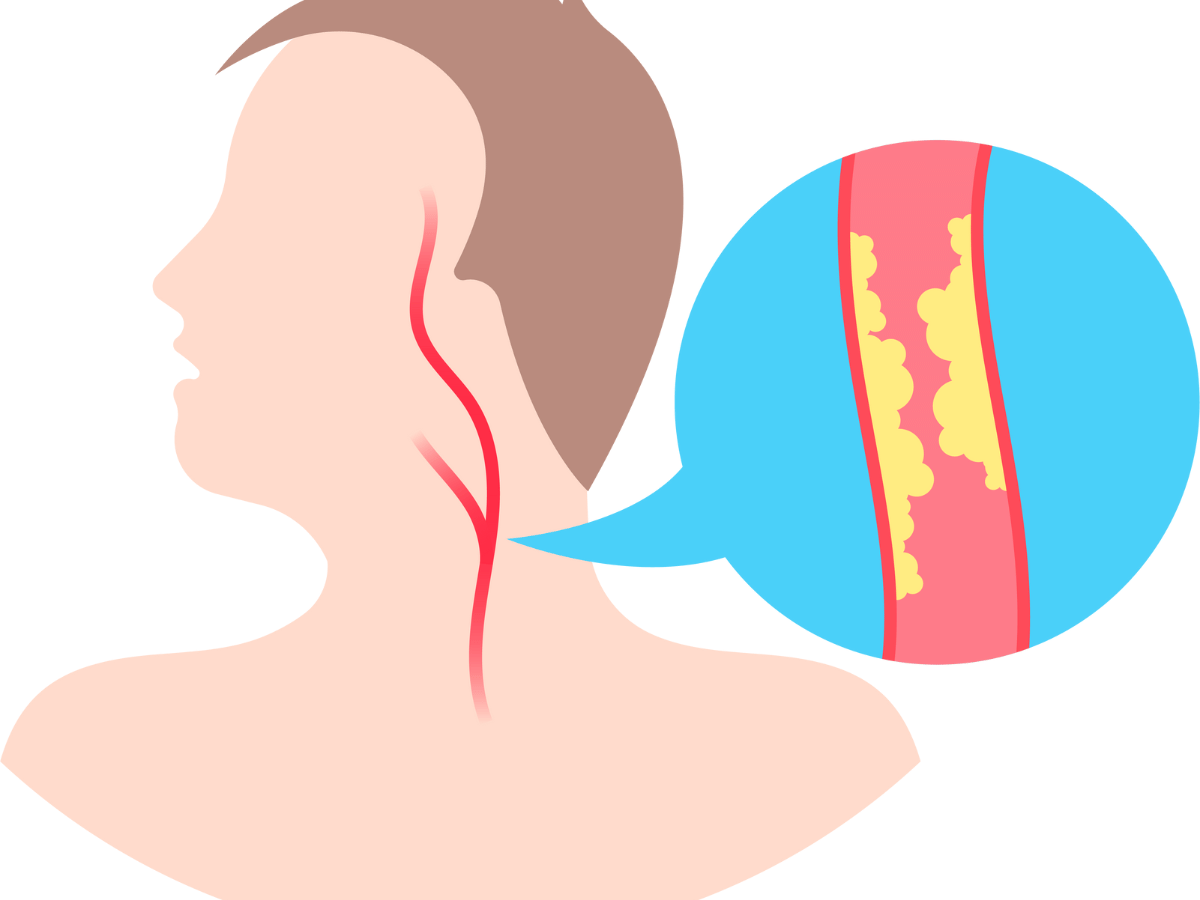
Carotid disease refers to the narrowing (stenosis) or blockage of the carotid arteries that run along each side of your neck. These arteries are major highways for blood traveling from your heart to your brain. When plaque made up of cholesterol, fat, calcium, and other substances builds up in these arteries, it reduces blood flow, increasing the likelihood of a stroke.
It’s important to note that many people won’t feel symptoms until the disease is advanced. That’s why understanding the underlying factors is so crucial.
Let’s make one thing very clear: carotid artery disease is one of the leading causes of ischemic stroke. In fact, studies show that 10 to 20 percent of ischemic strokes result from blocked carotid arteries. When plaque in these arteries breaks off or causes a complete blockage, it can cut off blood supply to parts of the brain. That’s a stroke and it can lead to paralysis, cognitive decline, or even death.
The good news? Most of these strokes are preventable with early detection, proper management, and patient education.
Carotid atherosclerosis develops over time, often silently. Here’s how it unfolds.
What’s truly sobering is that a person can develop significant carotid stenosis (narrowing) of 50 percent or more and still feel completely fine until they experience a TIA (mini-stroke) or full stroke.
While carotid disease may not show symptoms early on, certain red flags should prompt evaluation, especially in high-risk individuals.
Risk factors include:
Sometimes, the body gives us subtle warnings. Transient ischemic attacks (TIAs), brief episodes of numbness, vision problems, or confusion are wake-up calls. These “mini-strokes” often precede a major stroke and should never be ignored.
Diagnosing carotid artery disease typically starts with a non-invasive carotid ultrasound. This test uses sound waves to visualize blood flow and detect blockages or narrowing.
If ultrasound suggests significant stenosis, advanced imaging like CT Angiography (CTA) and MR Angiography (MRA) may follow. These tests provide a 3D view of the arteries and help guide treatment decisions.
At South Florida Multispecialty Hospital, we use these tools not just for diagnosis, but for establishing baseline vascular health and ongoing monitoring.
Treatment strategies vary depending on the degree of stenosis and stroke risk. Early-stage disease (50 percent narrowing or less) may respond well to lifestyle changes and medication. For moderate to severe narrowing (especially over 70 percent), more aggressive interventions may be needed.
Our treatments typically fall into three categories:
Preventing a stroke involves restoring and maintaining good blood flow to the brain. This isn’t just about one-time treatment; it’s about long-term commitment.
Key prevention approaches include:
We work closely with patients to create personalized prevention plans that are sustainable and effective.
Cardiovascular disease doesn’t affect just one organ; it affects your entire system. Managing risk factors for carotid disease also helps protect your heart, kidneys, and limbs.
Our team often works alongside cardiologists, endocrinologists, and neurologists to coordinate care. For example, we might help a patient lose weight with a dietitian while also managing their atrial fibrillation to further reduce stroke risk.
If you’ve had a carotid procedure or been identified as at-risk, regular follow-up care is essential. We recommend:
Stroke prevention is not a one-and-done event. It’s a journey and we’re with you every step of the way.
If you or a loved one has any risk factors or symptoms related to carotid artery disease, don’t wait. At South Florida Multispecialty Hospital, we offer advanced diagnostics, dedicated stroke prevention programs, and outcome-driven care tailored for you.
Take control of your vascular health today. If you or someone you love has stroke risk factors or symptoms of carotid disease, contact South Florida Multispecialty Hospital for expert screening and personalized treatment options.
Carotid disease occurs when plaque builds up in the carotid arteries, narrowing them and limiting blood flow to the brain. This raises the risk of ischemic stroke, especially if the plaque breaks off and causes a blockage in one of the brain’s arteries.
Atherosclerosis causes fatty substances, cholesterol, and other materials to accumulate in the artery wall, forming plaque that narrows or blocks blood flow.
Most people don’t feel symptoms until a complication like a transient ischemic attack (mini-stroke) or stroke occurs. Symptoms may include temporary vision loss, facial drooping, arm or leg weakness, and speech difficulties.
Individuals over 60 or those with cardiovascular risk factors such as high blood pressure, smoking, diabetes, or family history should discuss screening with their healthcare provider.
Primary testing includes carotid ultrasound. For more detailed imaging, CT angiography or MR angiography may be used.
Treatment ranges from lifestyle changes and medications to invasive procedures like carotid endarterectomy and carotid stenting, depending on severity.
Heart-healthy choices such as eating a balanced diet, exercising regularly, and quitting smoking can stabilize or even reduce arterial plaque, significantly cutting stroke risk.
Carotid endarterectomy is a surgical procedure that removes plaque from the artery. It’s particularly effective for patients with severe stenosis and can reduce stroke risk by over 50% in high-risk individuals.
Patients with multiple risk factors should consider screening every 1–2 years, or as advised by their physician based on individual health profiles.
Beyond medical interventions, controlling blood pressure, quitting tobacco, managing diabetes, staying active, and following a Mediterranean-style diet are extremely effective.
Your well-being is our top priority. Reach out today to discover how our dedicated team can support your health journey.
Have questions or want to learn more? Use the form below to get started!
Connect with South Florida’s trusted multispecialty care team and take control of your health with compassion and convenience.
©2025 South Florida Multispecialty Medical Group. All Rights Reserved.